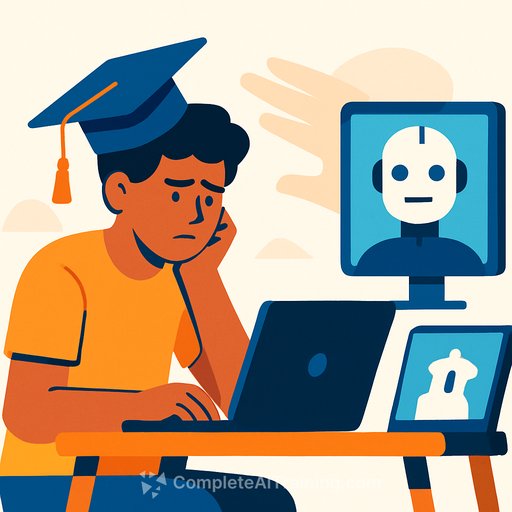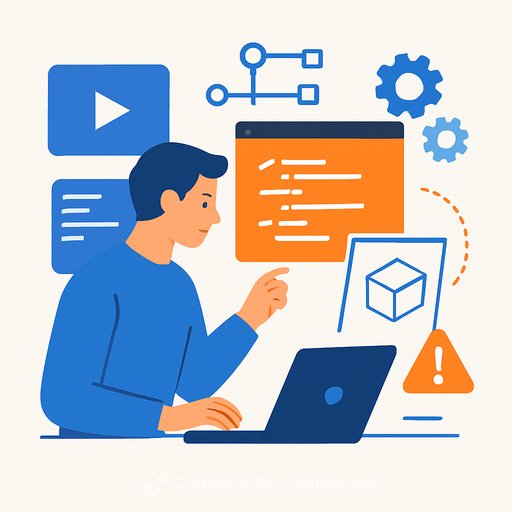From Bootcamp to Bust: How AI Is Disrupting Software Development Careers
For over a decade, coding bootcamps have served as a gateway into software engineering, especially for those without traditional computer science degrees. But as AI tools become more capable, the entry-level developer roles these bootcamps aimed to fill are rapidly disappearing.
Jonathan Kim’s experience highlights this shift. After investing nearly $20,000 in a coding bootcamp in 2023, he spent almost a year applying to over 600 software engineering positions. He received only a handful of responses and no job offers. Without a college degree, he faces an uphill battle, despite contributing to open-source projects to bolster his resume. For Kim and many like him, the promise of quick entry into tech is fading.
Bootcamps Were Already Struggling
Before AI accelerated the change, coding bootcamps were already facing challenges. Market saturation, changing employer needs, and the growth of international hiring had put pressure on bootcamp graduates’ job prospects. The rise of AI has only intensified this trend.
At the Codesmith bootcamp attended by Kim, only 37% of part-time students in 2023 secured full-time tech jobs within six months—a steep decline from 83% in late 2021. Even the bootcamps acknowledge the tough landscape. Codesmith, for example, still reports 70.1% of full-time program graduates find relevant jobs within a year, but the overall trend is downward.
Why Coding Jobs Are Shrinking
Coding is uniquely suited for AI automation because code either works or it doesn’t. This clear-cut nature makes it ideal for training AI models. With vast amounts of open-source code available, AI can quickly learn to write and debug software.
The result? Entry-level coding jobs are shrinking fast. Tech hiring reports show new grad positions have dropped by 50% compared to pre-pandemic levels. Experts predict AI could eliminate half of all entry-level white-collar jobs within a few years.
The Rise and Fall of Bootcamps
Coding bootcamps emerged around 2011 as a response to growing demand for software engineers and a desire for faster, alternative routes into tech careers. Early programs like Dev Bootcamp offered intensive training in popular languages such as JavaScript and Ruby.
By 2018, nearly 100 in-person bootcamps operated across the U.S. and Canada. They also became key partners for companies aiming to meet diversity hiring goals. But as diversity initiatives have taken a backseat, and AI has reduced entry-level roles, the bootcamp model is losing ground.
The New Hiring Reality
While entry-level software roles are vanishing, demand for experienced AI researchers is booming. These specialists command eye-popping compensation packages, sometimes with bonuses reaching into the tens of millions.
This shift favors graduates from elite universities. Top tech companies are returning to traditional recruitment channels, focusing on candidates from schools like MIT and Stanford. The inclusive, alternative pathway bootcamps provided is eroding.
Adapting to AI’s Impact
Some bootcamps, like Codesmith, are adjusting their curricula to include AI-focused leadership and skills training for mid-career engineers. But for recent grads like Kim, these changes offer limited immediate help.
As the entry-level coding job market contracts, aspiring developers must rethink their strategies. Expanding skillsets to include AI understanding and exploring roles beyond traditional software engineering may be necessary.
Moving Forward
If you’re in IT or development, staying informed about AI’s effects on job availability is critical. Upskilling with AI-focused training can help maintain relevance in a shifting market.
Explore practical AI courses and certification options to enhance your career prospects: Complete AI Training: Courses by Skill.
The software development landscape is changing. Those who adapt will find new opportunities, while old paths narrow.
Your membership also unlocks:






